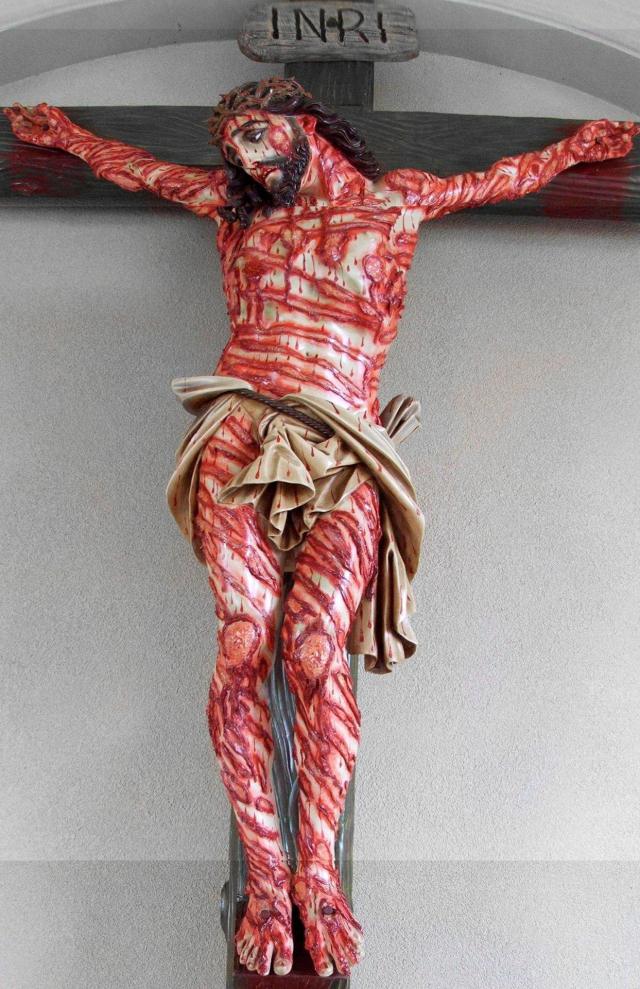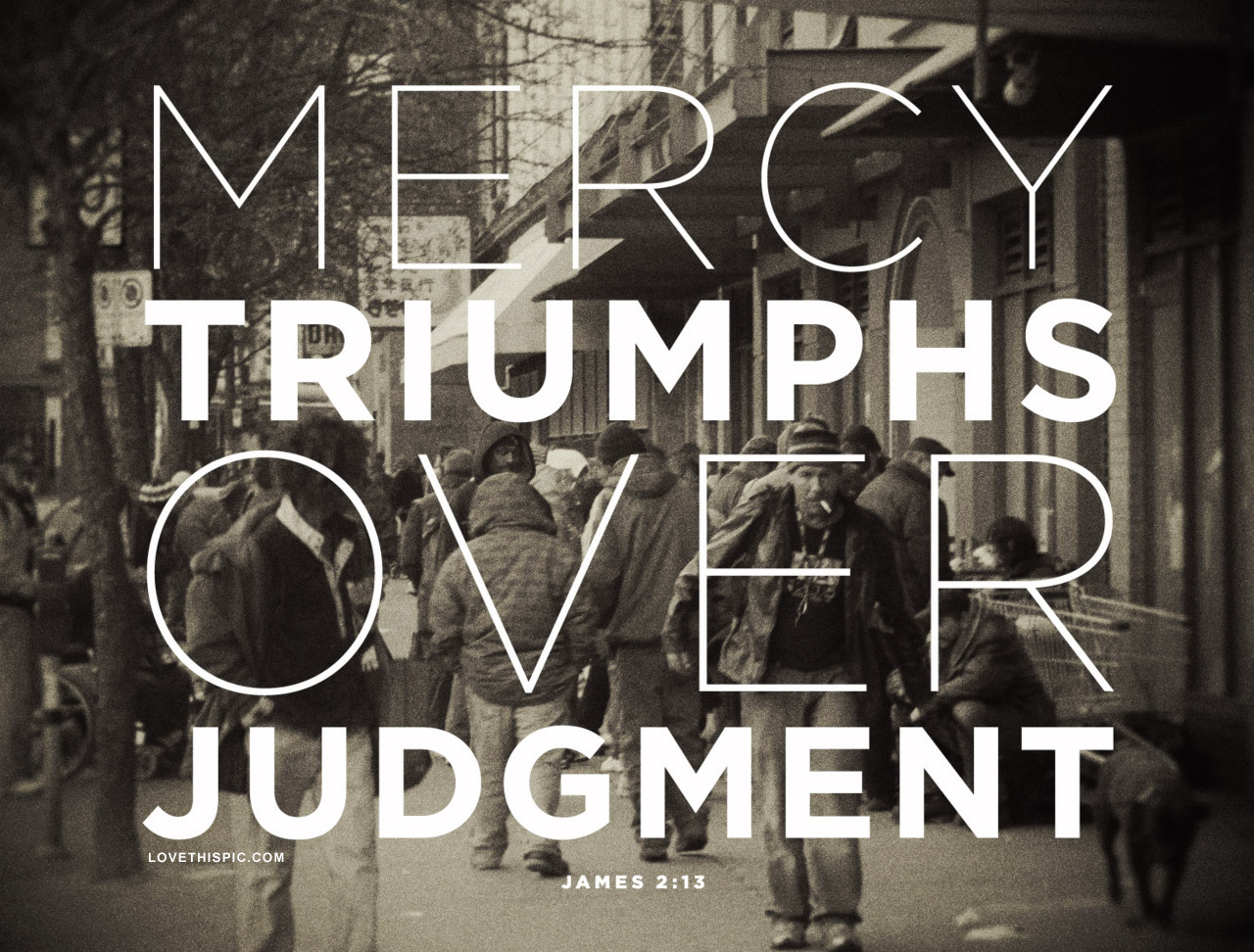
I have the distinct privilege of being associated as a Third Order Dominican with other men who make it their practice to visit the sick in hospitals in the Madison area and to be on call 24/7 to be present when someone is dying, regardless of creed or lack thereof, so that no one may have to die alone. Breathtaking.
I also volunteer with a secular divorced fathers group. I don’t do much. I am, as the founders call me, just one more relatively stable presence at the table. We have Chinese buffet once a month. My “official” duty or role is to be a PEO – Positive Emotional Outlet. That means that if anyone needs to primal scream at the top of their lungs, I volunteer to be the one they scream at. It is better than some of the negative behaviors these fathers deprived of their children may be tempted to indulge in. I am happy to offer. 🙂

-by Nicene Guy
“When we hear of “the sick,” we probably think immediately of those who are in the care of hospitals or hospices. Perhaps we think of our own families while they suffer through cold and flu season, or allergy season. This is, of course, sickness in the conventional sense of the word, and those who suffer it need our assistance and our care.
The elderly infirm also fall into this category, and so visitations to the nursing home also are a way of fulfilling this work of mercy. Since loneliness is often rampant in the nursing homes and retirement centers, the elderly in particular often appreciate visitors.
Saint Thomas Aquinas notes that the sick include both the elderly infirm and those who are permanently disabled:
“The purpose of giving alms is to relieve our neighbor’s need. Now there are many needs of human life other than those mentioned above, for instance, a blind man needs a leader, a lame man needs someone to lean on…
All other needs are reduced to these, for blindness and lameness are kinds of sickness, so that to lead the blind, and to support the lame, come to the same as visiting the sick. On like manner to assist a man against any distress that is due to an extrinsic cause comes to the same as the ransom of captives. And the wealth with which we relieve the poor is sought merely for the purpose of relieving the aforesaid needs [hunger, thirst, clothing, shelter]: hence there was no reason for special mention of this particular need” (ST II-II.Q32.A2. Obj2 and Reply).
Thus, “the sick” is a broad term. It encompasses those who are injured; those who are physically ill (whether temporary, chronic, or acute); those who are elderly infirm; those who are disabled (blind, maimed, lame, paralyzed); those who are mentally ill; and those who are ill from addiction (through substance abuse, for example).
Visiting the sick can be a simple act of kindness, such as sending a “get-well soon” sympathy card; or helping a blind man to cross a busy intersection safely. It can be a little more involved still, as when we prepare a meal or care for the children or property (e.g. pets) for somebody who is near-bedridden (if only temporarily) with sickness. This work can be even more involved to the point of feeling like it is all we are able to do, as any parent who has stayed up all night with throwing-up sick children will attest. And it gets even harder, as anyone who has suffered through the last days of a loved one’s cancer or other slowly fatal illness can attest.
I should add another thing here before considering the spiritual work of mercy which complements visiting the sick. Illnesses have alway been around, but they haven’t always been this safe. “The sick” also included lepers, which were not merely ill but fatally so; and the disease was a scary one, so that lepers were often banned from inhabited areas [1]. Yet, Saint Francis of Assisi ministered to one such leper despite his great fears of the disease, and Saint Damien Molokai eventually died from the leprosy which he contracted ministering to a leper colony on the Hawaiian island whose name he bears. There were many instances of Catholic orders setting up hospitals (as discussed previously), which eventually would care for victims of the plagues (and in particular the Black Death). And Catholic priests and sisters and lay persons have been chaplains, nurses, and doctors to the soldiers in the various wars throughout history, often risking their lives to minister to the wounded (or even to the fearful fit before a battle).
We may not all be called to take such risks in mercy, though of course we can read in the Bible that “There is no greater love than this: to lay down one’s life for one’s friends” (John 15:13). We may not have to fear leprosy or the bubonic plague (for now), but there are other diseases of both mind and body. AIDS is somewhat prevalent in America, but it is a pandemic in Africa, with as many as one in three people being infected in some countries. It may not be contagious in the way that the plague or leprosy was, but there is always some small risk of coming into contact with infected fluid. (Ebola)
Nearer to home, there is a different sort of sickness which we might confront. I would call it mental illness, but that is not quite accurate: call it mental imbalance, especially as caused by substance abuse. There are some men whose drug-addled brains leave them unpredictable at best, dangerous at worst. Yet these, too, are “sick,” these too need to be visited, though their visitations may take the form of counseling or admonishing as well as merely visiting and comforting.
Still, to comfort is the first purpose of visiting the sick, and any aide offered to the sick is surely meant in part to do that. This then is the spiritual complement to visiting the sick: comforting the afflicted. This work of mercy is often also referred to as consoling the sorrowful and occasionally as succoring the suffering. It perhaps most directly describes what we intend to do when visiting the sick (in the literal sense of visiting a person who is physically ill).
Or, to return to a previous example, it is even more so what we do for the family of the terminally ill and the surviving next of kin to the recently departed. Anyone who has suffered through the last days of a dying relative knows second-hand the suffering of the relative, but first-hand their own suffering through sympathy and a sense of loss. (Thy will be done, Thy Kingdom come!)
The person who comes to visit the sick might also do as much to relieve their suffering as to relieve the dying person’s, if the visit is done in a spirit of charity and goodwill. The same might be said of those who engage in the corporal work of burying the dead, as their honoring of the memory of the departed might also offer comfort to the living folks dear to him.
The afflicted, the sorrowing, the grieving, the miserable: these words all pertain to an interior state more than an exterior one. Certainly, some of these states may be confused with depression, whether from a chemical imbalance (which would make it a more physical sickness) or a metaphysical state. There are correspondingly some forms of affliction which we might attempt to comfort, and some which are left to the “professionals,” by which I mean the ordained priests. I can help alleviate the physical or mental suffering of a friend or family member of spending time with him, or by kind works or kind deeds, or by a thoughtful gift or even a warm embrace.
However, some kinds of affliction are metaphysical, spiritual. We see these everyday, and are to some extent powerless against them. We can offer consolation and comfort, but some afflictions can be removed only by exorcism. This is a job for a trained priest, lest we bring the afflicting spirit upon our own heads. These kinds of affliction fall under a different work of mercy.
In the meantime, comforting the afflicted involves any true act (or words) of true kindness. Unfortunately, all-too-many people mistake comforting the afflicted with enabling the affliction. The man addicted to drugs who suffers withdrawal pains does not need to be given more drugs, but rather needs counseling and rehabilitation. Similarly, many people today are “afflicted” by their sins, and their perceived wronging at the hands of society over those sins. This is true of any addictive sin or sinful temptation, whether drug addiction, kleptomania, viewing pornography, eating disorders (gluttony), gossip [2], or any of a variety of sexual temptations and disorders, etc.
All-too-often the response is to excuse the sin as being the natural satisfaction of a very real (and often physical/physiological) temptation. It is always easier to say, “You were born this way, and there is nothing wrong (disordered) about that temptation or acting upon it” than it is to recognize that to varying extents and degrees we are all born into sin. (…And, God-do-not-forbid, acknowledging free will, God-do-not-forbid, that great gift we all cherish, and take such pride in, another deadly sin, until we are called to accountability for exercising that great gift we all take such pride in. Until. Gal 6:7. Thereby, NEVER having to be accountable. HOW convenient. How.) We all suffer the curse of Adam, the concupiscence of our parents; to some extent, we all live in the double darkness of sin and ignorance, and we all struggle with some particular sin or set of sins. We are all afflicted in this way.
It is no comfort to pretend that a sin is not a sin for the sake of gaining physical or psychological satisfaction. It may appear to be comforting the afflicted, and may appear to be treating the “physical symptoms” of the affliction; so would be giving drugs to an addict in withdrawal pains. Doing this may alleviate the physical pains and craving for a time, but in the meantime it places the soul more firmly in the grasp of that temptation, so that the afflictions will return with a vengeance. It trades physical comfort for spiritual affliction. “What does it profit a man to gain the whole world and to lose his soul?” (Mark 8:36).
There is another kind of affliction which is spiritual, and which is of the opposite sort than this. If our society inflicts spiritual afflictions in the name of physical comforts and consolation, our consciences might at times inflict spiritual agony in greater proportion that our sins warrant. C.S. Lewis puts this idea into his children’s stories, in particular during an exchange between two characters in his Prince Caspian. Near the end of that book (spoiler!), the title character is crowned King of Narnia, and holds a brief dialogue with Aslan (Narnia’s manifestation of Christ). Aslan explains to Caspian that he is descended from pirates who had blundered into the world of Narnia, eliciting a disappointed remark from Caspian about wishing that he had descended from “more honorable lineage,” to which Aslan responds:
“You come of the Lord Adam and the Lady Eve..that is both honor enough to erect the head of the poorest beggar, and shame enough to bow the shoulders of the greatest emperor on earth. Be content.”
We have a tendency to beat ourselves up over little things, which can then at times cause us to lose focus on the bigger things. (AMEN!!!! REMEMBER HIS INFINITE LOVE & MERCY!!!!) Scrupulosity over small sins can lead us to miss bigger ones, which is nearly as great a spiritual danger to us as listening to the world when it tells us to ignore our sins entirely. (AMEN!!!! Honesty, the TRUTH, is the HARDEST THING TO DO!!!! With ourselves, gently & charitably with others, for them, mostly, but also for us, gently & charitably. The lie is always easier, always.)
“Woe to you, teachers of the law and Pharisees, you hypocrites! You give a tenth of your spices—mint, dill and cumin. But you have neglected the more important matters of the law—justice, mercy and faithfulness. You should have practiced the latter, without neglecting the former. You blind guides! You strain out a gnat but swallow a camel” (Matthew 23:23-24). (Now, we haven’t seen this in our own time, have we? 😉 (The Gospel is constantly fulfilled. IT KEEPS COMING TRUE!!!! And, so it will be, until the end.)
The problem of the Pharisees, as Jesus explains earlier in the same chapter of Matthew’s Gospel, is that they had failed to comfort the afflicted, and had indeed added to their affliction: (Lord, have mercy!)
“The scribes and the Pharisees sit on Moses’ seat; so practice and observe whatever they tell you, but not what they do; for they preach, but do not practice. They bind heavy burdens, hard to bear, and lay them on men’s shoulders; but they themselves will not move them with their finger” (Matthew 23:2-4).
The Scribes and Pharisees sat in Moses’ Judgment seat—Moses of course was the one to whom God gave the Old Law, the Ten Commandments as it were. Thus the Scribes and Pharisees were correctly interpreting the moral law, but were not correctly applying it. What underlies morality is love, and the “rules” of morality are rules of “right living” (and ultimately, of “right loving”), which have a threefold purpose: inner harmony, social harmony, and harmony between society and God. The first is harmony within one’s soul, that is, right relationship to oneself. The second is harmony with one’s neighbors (and between all members of the human race), right relationship with others. The last is harmony between the soul and God, that is, right relationship to God.
The Pharisees for their part were not being excoriated for insisting on the moral rules, nor even for their interpretations of the moral rules. The moral rules still apply insofar as they were moral rules, as Christ notes:
“Think not that I have come to abolish the law and the prophets; I have come not to abolish them but to fulfill them. For truly, I say to you, till heaven and earth pass away, not an iota, not a dot, will pass from the law until all is accomplished. Whoever then relaxes one of the least of these commandments and teaches men so, shall be called least in the kingdom of heaven; but he who does them and teaches them shall be called great in the kingdom of heaven. For I tell you, unless your righteousness exceeds that of the scribes and Pharisees, you will never enter the kingdom of heaven” (Matthew 5:17-20).
The problem is not that the Pharisees were going too far in their moral pronouncements: rather, they were not going far enough. They made the pronouncements, but then did not help others to live up to those pronouncements, and then judged and condemned those others when they failed. We look to Christ as the ultimate comforter of the afflicted, Who says “I do not condemn you for your sins: go, and sin no more” (John 8:11), but also “Take my yoke upon you, and learn from me; for I am gentle and lowly in heart, and you will find rest for your souls. For my yoke is easy, and my burden is light” (Matthew 11:29-30). He comforts all the afflicted by taking on the cause of all our afflictions, and with it much of the suffering. herein lies the true difficulty of comforting the afflicted, which is the risk of taking on some of the suffering and some of the affliction ourselves. If we will be true disciples we must, because He did.”
—Footnotes—
[1] According to Old Testament Jewish Law, lepers must be banned from civilized areas and must further warn away any travelers whom they might encounter.
[2] Gossip can be addicting, sort of; if not gossip itself then at least the attention which comes from it.
Love, and always in need of His mercy,
Matthew














